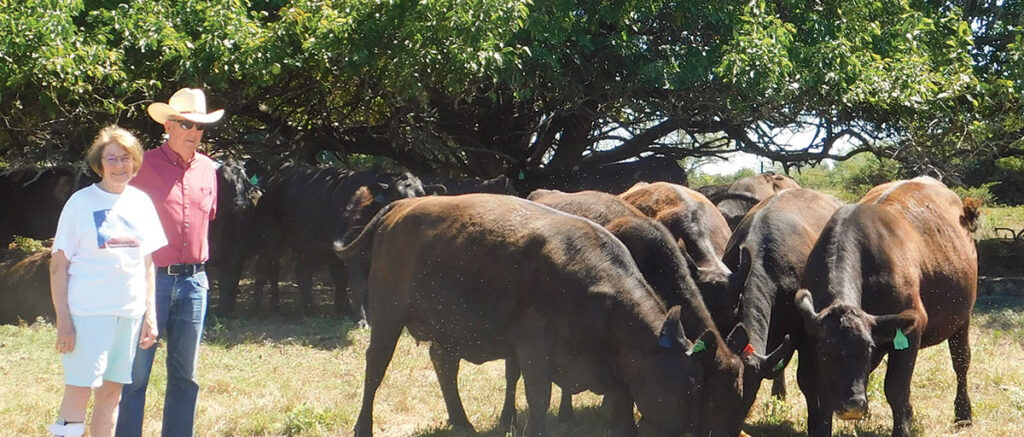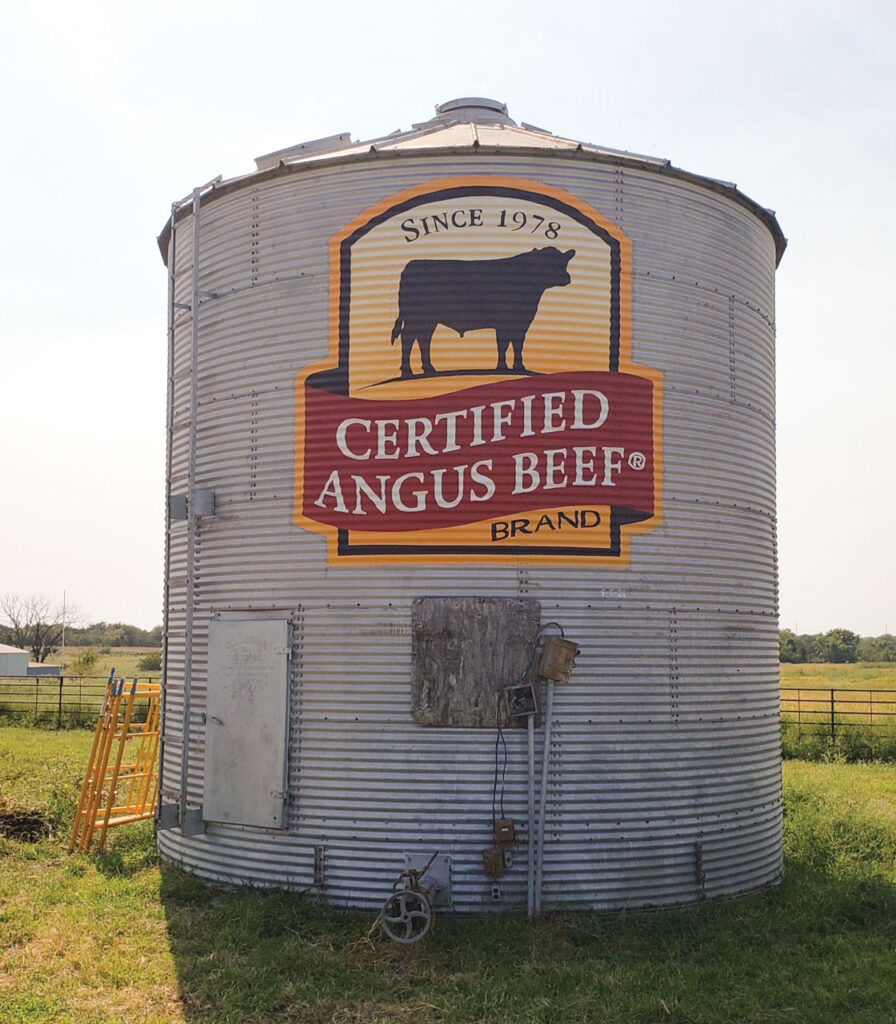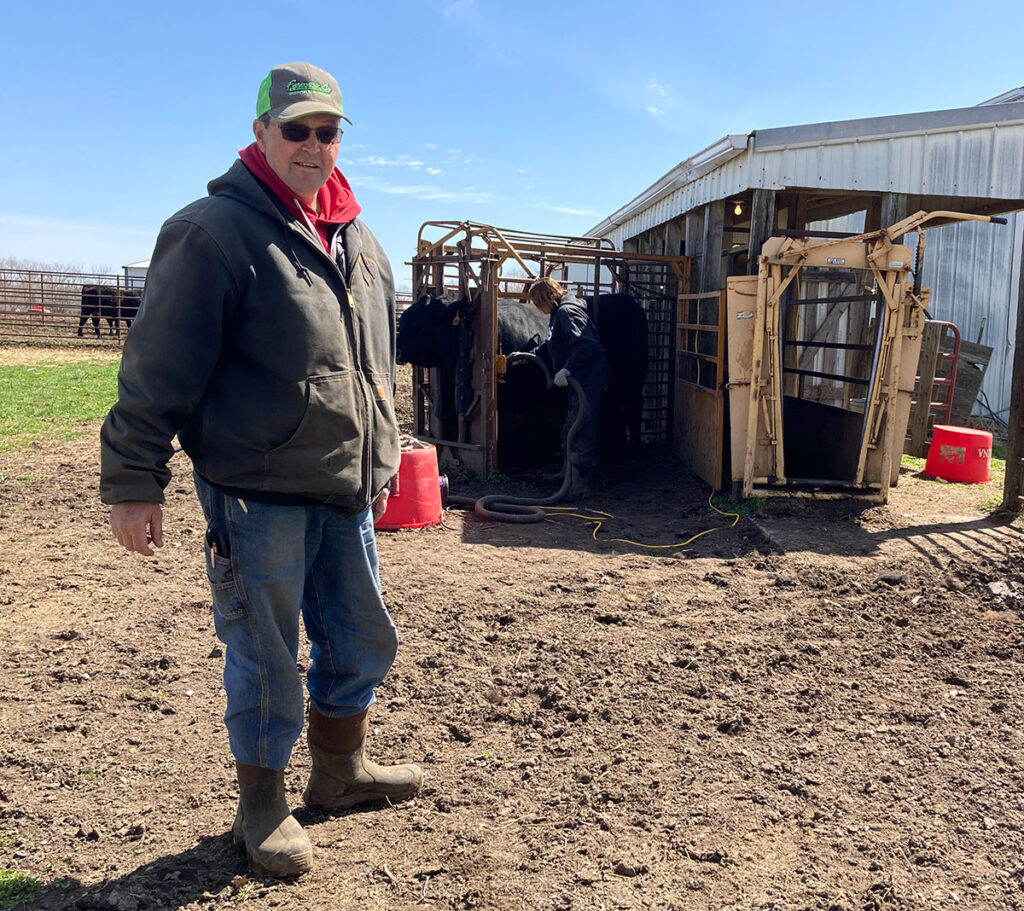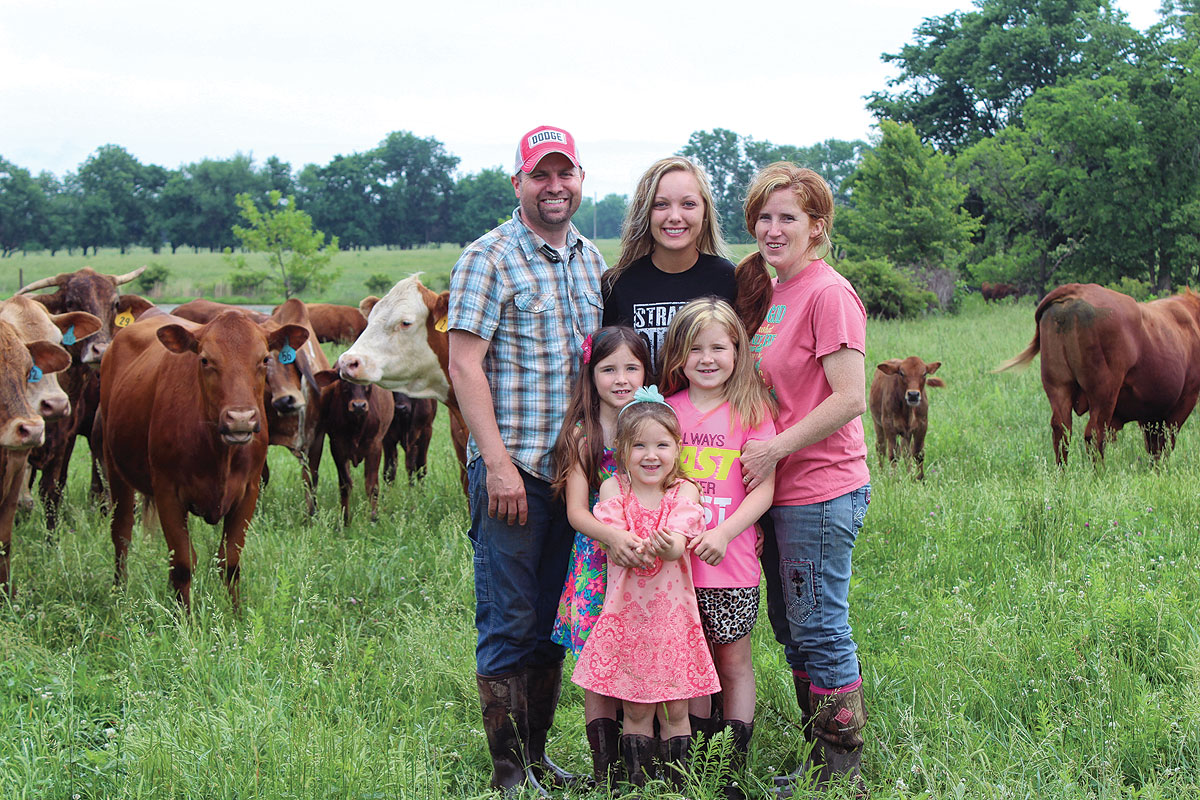
Norman and Vicki Garton began breeding registered cattle in 1970
NEVADA, MO. – For more than 50 years, Norman and Vicki Garton of the Garton Angus Ranch near Nevada, Mo., have been keeping records on their cattle.
They purchased their first registered Angus in 1970 by purchasing females from Aristocrat Ranch in Colorado, Griswold Cattle in Wisconsin, and Ankony Angus in Iowa.
“The market prices were pretty reasonable at that time,” Norman recalled. “It was a good time to get into the business.”
They sold their first cattle at the Four-State Angus Sale in 1973 and made a nice profit.
That same year, they began artificial inseminating all their cows and keeping records. It’s a practice they still follow. They AI twice and then turn a cleanup bull. The heifers are AI serviced at 16 months so they will calve when they are about 2 years old. They try to have the heifers calve two weeks before the cows. They have both a fall and spring calving season.
“We synchronize the breeding so we can dedicate that time specially to calving,” Norman said. “The time we can program, but blizzards are out of our control. We have to deal with the weather like everyone else.”
In 1980, they began the embryo transplant program.
“We only use our very best older cows with proven genetics,” Vicki said. “Those genetics include longevity, good milking qualities, and especially reproduction. The cows have to settle the first time and have easy deliveries.”
In about 1978, they were able to enter the Certified Angus Beef program (CAB). “This has helped our program immensely,” Norman said. “People know the product is consistent and guaranteed. It’s a branded product known around the world.”
About a year ago, they were selected to have the CAB logo painted on a grain bin on their farm. They were only the second to be authorized in Missouri.

“The artist who painted the logo and has done about 40 in the United States, said we have one of the best locations for the sign. It is located on Interstate 49 between Nevada and Sheldon,” Norman said.
The population of adult Angus on the Garton Angus Ranch at the present time is about 125. The cattle are fed grass as much as possible, but some hay and feed are purchased. They used to use self-feeders to develop bulls, but since the price of feed has doubled along with transportation prices, they now hand feed.
“It’s back to using the feed bucket and limiting the amount of feed,” Norman said. “But the bulls end up getting developed, so that is the important thing.”
The Garton Angus Ranch has utilized the Green Springs Bull Testing Program since it began 22 years ago. They have sales twice a year. Garton Angus cattle have been in all the sales.
“When we stopped having our own production sales, we began selling females at the end of the Green Springs Bull Sale,” Vicki said. “Our next sale is Nov. 21.”
They also sell cattle through private treaty and online. Sometimes, they take cattle to the Angus Futurity Sale or the Four State Sale.
As part of pasture management, regular soil tests are taken and lime is applied as necessary. The cattle are pastured in smaller lots and rotated on about a 30-day rotation, especially at the south unit where son George and his wife Crystal live.
“I try to put on 2 pounds ladino and 5 pounds red clover every spring to dilute the fescue. I don’t apply fertilizer then as it is hard on seed germination. I’ve been trying to reestablish lespedeza but no luck so far,” Norma explained. “I use the lowest level of nitrogen, but use phosphorous and potassium to help feed the clover.”
Fly control is an ongoing project. They use fly tags, pour on and IGR in their mineral, but nothing is 100 percent perfect. “Flies get immune to almost everything so we are constantly trying something different,” Norman said.

They purchase three different kinds of hay. Fescue is the most used, with prairie hay — which is low in protein, but high in fiber — used with weaning calves. Alfalfa is used sparingly to develop heifers. Garton Angus Ranch produces and harvest some of the hay it feeds.
Since Norman had a veterinary practice for 20 years, and worked for the USDA as a food inspector for 23 years, retiring in 2012. He is very knowledgeable of the quality of care needed for the health of the cattle, and the products to use.
Calves are vaccinated twice while still on the cows and again at weaning. Their health program also includes worming twice a year. They do DNA testing when they AI. Norman said there are 21 traits they can pick up from that blood test and that gives them a better prediction of the value of the cow.
Daughter-in-law Crystal works full-time for Smithfield Food and is proficient in the use of spread sheets and the Excel program. She also has input on the selection of herd sires and blood lines. George works full time on the Garton Ranch. All four of the partners study reports from the Angus Association and follow data in genetic selection. They check the websites and stay with performance rather than show qualities.
They also have a second son, John who chose to get a doctorate in art history and teaches at the Clark University in Massachusetts. He has two teenage daughters, Edith and Irene.
Since Garton Angus have so many generations of proven records, they retain their home-raised cattle, only adding new bloodlines when necessary.
The number one reason for culling a cow is reproduction. They said if the cow was slow to breed back, she goes. If a cow is wild, she is culled. They also look at the structure of their feet and legs and score how they walk
The Garton family run their herds together, but each family, Norman and Vicki, and George and Crystal, have their own cattle. As the years fly past, health has become the major deciding factor in how many cattle they run. The older couple have cut numbers of their cattle while the younger ones are maintaining larger numbers.
Vicki not only helped with the care of the cattle over the years, but taught at Crowder College where she retired in May of 2020.
“One of the plus things in purebred registered Angus production has been the trips we got to take,” Norman said. “Since 1990, we’ve traveled to over 20 foreign countries. We would go by vet clinics and get to associate with people from different cultures, learn from them and how their farms operate. We’ve formed friendships we still have today.”
Garton Angus Cattle have received many awards over the years, however in 2021, Norman received the prestigious Missouri Angus Pioneer Inductee Award. This sums up 50-plus years of caring for the cattle in the required manner and would not have been possible without record keeping.







